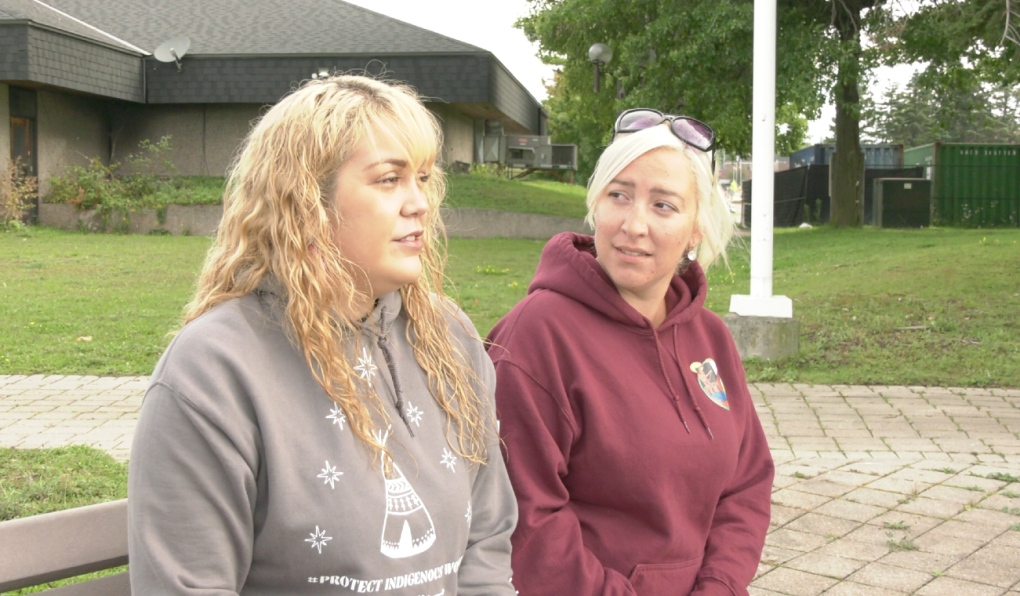Animated documentary shows the perils of life after foster care in the North
A Sault-based organization recently created an animated short documentary aimed at shining a light on the hardships faced by Indigenous youth who age out of foster care.
The video, titled ‘I Don't Know Where I'm Going to Live,’ was created by Bawaating Child Welfare Warriors (BCWW), along with teens struggling with the transition after life in foster homes.
BCWW co-founders Jenilee Neveau and Caceila Trahan entered the film in the Sault's Fringe Festival recently, wanting its message to be seen far and wide, Trahan said.
"We felt like creating art would be a peaceful way to help these young people share their voices with community, and educate community, and challenge them to do better in a way that felt worthy to the young people so they could feel empowered," Trahan said.
The current housing crisis was making the already difficult task of acquiring housing as an 18-year-old even more difficult. Trahan said many youth end up homeless after exiting foster care.
In an excerpt from the video, one of the youths, whose name is being withheld, shared his viewpoint.
 A Sault-based organization recently created an animated short documentary aimed at shining a light on the hardships faced by Indigenous youth who age out of foster care.
A Sault-based organization recently created an animated short documentary aimed at shining a light on the hardships faced by Indigenous youth who age out of foster care.
"Sometimes finding a place feels hopeless ... rent costs more than I'll make at 18."
Both Neveau and Trahan know what that hopelessness feels like, having been in a similar situation after they turned 18.
The pair now work with youth who are nearing the end of their tenure in the child welfare system.
Last year, Bawaating Child Welfare Warriors helped 10 youth, and they're working with 13 this year, said Neveau.
"Our main focus is to make sure that they're prepared,” Neveau said.
“That the youth are ready to have their knowledge like bank accounts, and ID, just the basic essentials to get out into the real world to increase their chances of success."
Among the video’s themes is a recount of an experience one youth had with a worker assigned to help them.
"I was in her office the other day. I was tired and hungry and frustrated. She told me I had a bad attitude. I wish she would just listen to me."
NEED TO DO BETTER
A first-hand experience like this is why the two said the whole child welfare system needs to be rethought.
"Whether it be services providers, agencies, collective care circles at large, challenge them to do better,” Trahan said.
“Our young people are simply slipping through the cracks, specifically Indigenous youth that are involved in the foster care system."
The animated documentary has yet to be released publicly, but the pair said to monitor the organization's social media for updates.
They hope that those who see it become advocates for the youth who are left to fend for themselves as soon as they reach adulthood.
"People might be shocked, and might have some trouble sleeping at night if they understood how many youth are in these precarious, dangerous situations," Neveau said.
CTVNews.ca Top Stories

WATCH Woman,50, critically injured in explosive Ottawa crash caught on camera, police looking for witnesses
Dashcam footage sent to CTV News shows a vehicle travelling at a high rate of speed in the wrong direction before striking and damaging a hydro pole.
Here’s why you should monitor your blood pressure, keep it in check
An Ottawa pharmacist says blood pressure is a good indicator of overall health, noting the importance of keeping it at healthy rates.
Heaviest snowfall in a decade possible in some areas as winter storm threatens U.S.
A blast of snow, ice, wind and plunging temperatures stirred up dangerous travel conditions in parts of the central U.S. on Sunday, as a disruptive winter storm brought the possibility of the 'heaviest snowfall in a decade' to some areas.
Maserati driver seriously injures 2 in Surrey hit-and-run: police
The driver of a Maserati fled the scene of a crash in Surrey that left two people seriously injured Saturday night, according to authorities.
Air Canada passengers living with extra baggage fees
Some Air Canada passengers at Montreal’s Trudeau Airport were annoyed that they will now have to pay additional fees for their carry-on luggage.
Russia 'getting what it deserves,' Ukraine says, after launching counterattack in border region
Ukraine has launched a counterattack in the southern Russian border region of Kursk, warning that Russia is 'getting what it deserves.'
Here’s the latest on this weekend's winter storms in Canada
From snow, to high winds, to extreme cold, much of Canada is under a severe weather alert this weekend. Here's what to expect in your region.
Big Dreams for 'The Littlest Hobo': Fans push for star on Canada’s Walk of Fame
When Terry Bush co-wrote and sang Maybe Tomorrow, the theme song for The Littlest Hobo, he thought it was just another gig—a catchy tune for a TV show about a wandering German Shepherd. Forty-five years later, that 'little tune' still tugs at heartstrings, pops up on playlists, and has even been known to be played at closing time in English pubs.
Mark Carney reaches out to dozens of Liberal MPs ahead of potential leadership campaign
Mark Carney, the former Bank of Canada and Bank of England governor, is actively considering running in a potential Liberal party leadership race should Justin Trudeau resign, sources tell CTV News.































